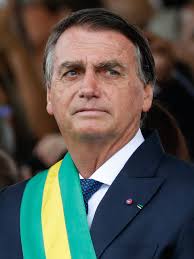
Introduction
Jair Bolsonaro, the controversial former president of Brazil, has been a polarizing figure in both national and international politics. His tenure from January 2019 to December 2022 was marked by significant political, environmental, and social changes, impacting Brazil’s trajectory on the global stage. Understanding his influence is essential for gauging future developments in Brazil’s political landscape, especially as the nation navigates a new administration under President Luiz Inácio Lula da Silva.
Key Policies and Controversies
Bolsonaro’s presidency was characterized by his right-wing populist agenda and a blend of military and conservative ideals. His government’s approach to the Amazon rainforest and environmental policies faced intense scrutiny. Bolsonaro frequently downplayed climate change, arguing for the economic benefits of developing the Amazon, leading to significant deforestation rates during his term. According to Brazil’s National Institute for Space Research (INPE), deforestation surged by over 60% in the first year of his presidency.
COVID-19 Response
Another significant aspect of Bolsonaro’s legacy is his handling of the COVID-19 pandemic. Critics accused him of negligence and mismanagement as Brazil became one of the hardest-hit countries in the world. Bolsonaro initially dismissed the virus’s severity, promoting unproven treatments and opposing lockdown measures. His approach led to widespread public outrage and protests, ultimately impacting Brazil’s health infrastructure and economy.
Political Landscape and Recent Developments
In the 2022 elections, Bolsonaro lost to Lula, a significant shift in Brazil’s political dynamic towards progressive policies. This change has raised concerns among Bolsonaro’s supporters about potential political and economic repercussions. As of late 2023, many of Bolsonaro’s policies are still being evaluated under Lula’s administration, with debates on environmental regulation, economic recovery, and public health priorities reshaping Brazil’s policy agenda.
Conclusion
The legacy of Jair Bolsonaro continues to dominate discussions in Brazil, as his presidency has left a lasting impact on the nation’s politics, environment, and public health system. As Lula’s government embarks on implementing its policies, the future remains uncertain—creating opportunities for both progressive change and backlash from Bolsonaro’s steadfast supporters. Observers will be keenly watching how these dynamics unfold, as they could reshape Brazil’s identity in the global political arena moving forward.




